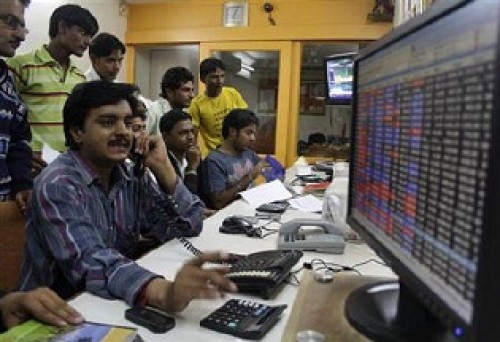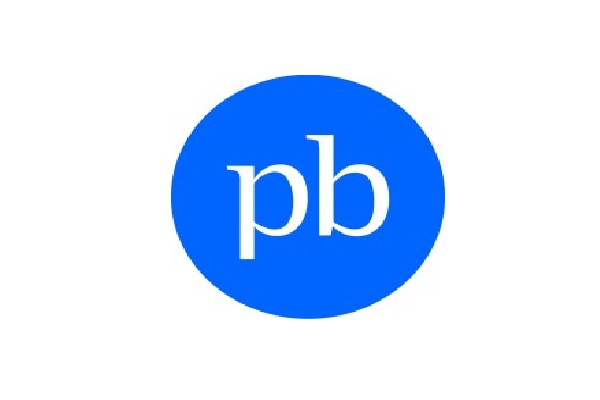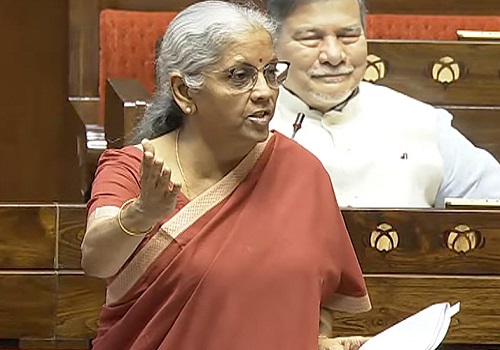Benchmarks end higher on Thursday; Nifty tops 17,650 mark

Indian equity benchmarks ended higher with gains of more than half percent on Thursday buoyed by intense buying in IT, financial and banking stocks amid a firm trend in global markets. Key gauges made gap-up opening and stayed in green for whole day, as traders took encouragement with a private report that India is likely to be the fastest-growing Asian economy in 2022-23. The report expects India’s gross domestic product growth to average 7 per cent during this period - the strongest among the largest economies - and contributing 28 per cent and 22 per cent to Asian and global growth, respectively. Foreign fund inflows also aided the domestic sentiments. Foreign institutional investors (FIIs) have net bought shares worth Rs 1,061.88 crore on August 10, as per provisional data available on the NSE.
Traders remained optimistic in late afternoon deals, taking support from Reserve Bank of India (RBI) in its latest data has showed that bank credit rose 14.52 per cent to Rs 123.69 lakh crore and deposits increased 9.14 per cent to Rs 169.72 lakh crore in the fortnight ended July 29. Traders took note of report that the Centre has released two instalments of tax devolution totalling Rs 1.16 lakh crore to states. Meanwhile, India will start supplying petrol with 20 per cent ethanol at select petrol pumps from April next year and will ramp up supplies thereafter as it looks to cut oil import dependence and address environmental issues. Traders overlooked private report stated that Investments by private equity and venture capital funds into Indian entities fell by 69 per cent to $3 billion during July. The investments in July are the lowest for any month in a year, and lower than the $4.9 billion recorded across 118 deals in the preceding month of June.
On the global front, European markets were trading lower as investors assessed their monetary policy expectations after a cooler-than-expected US inflation print, and digested a raft of corporate earnings. Asian markets ended higher on Thursday as investors cheered the US inflation data for July, which came in below the estimate and raised hopes that the Federal Reserve may not be that aggressive in hiking interest rates in its next meeting.
Finally, the BSE Sensex rose 515.31 points or 0.88% to 59,332.60 and the CNX Nifty was up by 124.25 points or 0.71% to 17,659.00.
The BSE Sensex touched high and low of 59,484.99 and 59,251.14, respectively. There were 19 stocks advancing against 11 stocks declining on the index.
The broader indices ended in green; the BSE Mid cap index rose 0.83%, while Small cap index was up by 0.52%.
The top gaining sectoral indices on the BSE were Bankex up by 1.64%, IT up by 1.61%, Finance up by 1.51%, Consumer Durables up by 1.35% and Realty up by 1.34%, while FMCG down by 0.72%, Metal down by 0.16%, Basic Materials down by 0.06%, Telecom down by 0.04% and Auto down by 0.03% were the top losing indices on BSE.
The top gainers on the Sensex were Axis Bank up by 2.75%, Bajaj Finance up by 2.36%, HDFC up by 2.32%, Tech Mahindra up by 2.12% and TCS up by 1.98%. On the flip side, ITC down by 1.56%, NTPC down by 1.38%, Hindustan Unilever down by 1.04%, Bharti Airtel down by 0.76% and Maruti Suzuki down by 0.69% were the top losers.
Meanwhile, Credit rating agency Crisil in its latest report has said that elevated inflation will cap the operating margin of apparel retailers to below the pre-pandemic level, even though they are on course to stitch a 21-23 percent revenue growth this fiscal (FY23). It also said strong same-store sales, new store launches, and higher contribution from online channels will sew a 21-23 percent revenue growth for apparel retailers this fiscal, or 500 percentage points over the pre-pandemic (fiscal 2020) levels, despite elevated inflation impacting discretionary demand.
The agency expects large apparel retailers to grow faster at 25-30 percent this fiscal, compared with 10-15 percent by small and mid-sized players. However, it said though operating margins will improve by 175-200 bps to 7.75-8 percent boosted by an increase in scale leading to better fixed-cost absorption, price hikes, and a greater share of private labels, higher input prices will cap margin by 50-70 bps below fiscal 2020 level. Among the key inputs, domestic cotton prices almost doubled between April 2020 and May 2022. Despite some moderation since June 2022, the prices are expected to remain elevated.
The agency expects large apparel retailers will clip at 25-30 percent, while small and mid-sized players will see their top lines growing by 10-15 percent this fiscal. Large players will also lead the improvements in operating margins with 250-300 bps expansion. Capex is set to rise over 30 percent this fiscal because of the improvement in demand. Apart from store expansions, the addition of warehousing space, and investment towards brand acquisitions, a significant part of the spending will be to augment tech platforms and online offerings.
The CNX Nifty traded in a range of 17,719.30 and 17,631.95. There were 29 stocks advancing against 21 stocks declining on the index.
The top gainers on Nifty were Axis Bank up by 2.67%, IndusInd Bank up by 2.31%, Bajaj Finance up by 2.28%, HDFC up by 2.22% and Tech Mahindra up by 2.01%. On the flip side, Tata Consumer Product down by 2.22%, Apollo Hospital down by 2.09%, ITC down by 1.75%, NTPC down by 1.32% were the top losers and Hindustan Unilever down by 1.01%.
European markets were trading lower; UK’s FTSE 100 decreased 19.53 points or 0.26% to 7,487.58, France’s CAC decreased 8.14 points or 0.12% to 6,515.30 and Germany’s DAX decreased 19.47 points or 0.14% to 13,681.46.
Asian markets ended higher on Thursday tracking Wall Street gains overnight after data showed US inflation grew at a slower pace than expected in July that eased recession fears and worries about aggressive monetary tightening in the United States, the world’s largest economy. Chinese shares surged despite ongoing tension between China and Taiwan. China's Taiwan Affairs Office issued a white paper laying out how China intends to claim Taiwan through a range of economic incentives and military pressure. Meanwhile, Japanese markets were closed for Mountain Day holiday.
Above views are of the author and not of the website kindly read disclaimer










Tag News
More News

Quote on AMFI Data by Pankaj Shrestha, Head - Investment Services, PL Capital - Prabhudas Li...









